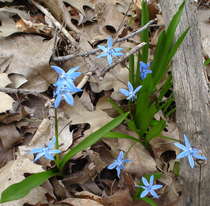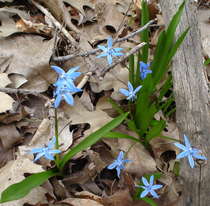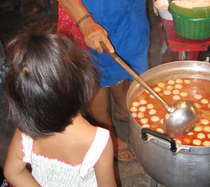 The Lord said to Abram, Leave your country, your family and your fathers house, for the land I will show you. I will make you a great nation; I will bless you and make your name so famous that it will be used as a blessing.
The Lord said to Abram, Leave your country, your family and your fathers house, for the land I will show you. I will make you a great nation; I will bless you and make your name so famous that it will be used as a blessing.
I will bless those who bless you:
I will curse those who slight you.
All the tribes of the earth
shall bless themselves by you.
So Abram went as the Lord told him.
Genesis 12:1-4
The first reading today tells the story of Abram’s call from God to leave his home and follow God to some unnamed place. Abram does as he is instructed, even with scanty information.
As Jaques Guillet points out in his article on “Blessings” in “Dictionary of Biblical Theology,” this blessing marked a turning point, it was a “new kind of blessing.” After many chapters of curses after sin made its entrance into the world, God addresses Abram with a blessing not only for himself or his family, but for all peoples on the earth. This is the beginning of the unfolding of salvation history.
Why Abram? Scriptures do not tell us, but they do record his (and Sara’s) response; obedience. What did it mean for he and Sara to leave family, friends, homeland for an unknown destination? Did the ones behind think the couple was crazy or odd? How did they explain their move to people who worshiped many gods?
While no history of Abram and his wife are given, we know they were people of faith. That alone is enough to answer “Why them?” People with faith strong enough to enable them to trust their lives and their future to an unknown God.
When unknowns fill our lives, we might remember Abram and Sara, their trust that led through difficult times, but eventually to great blessings. God did not abandon them, nor will we be left alone. God walks with us.
 PHOTO: NASA Bless the Lord, all his works,
PHOTO: NASA Bless the Lord, all his works, PHOTO: Mary van Balen
PHOTO: Mary van Balen  (U.S. Navy photo by Mass Communication Specialist 1st Class Matthew M. Bradley/Released)
(U.S. Navy photo by Mass Communication Specialist 1st Class Matthew M. Bradley/Released) 
 PHOTO: Mary van Balen
PHOTO: Mary van Balen 
 PHOTO: NASA Eternal Spirit,
PHOTO: NASA Eternal Spirit,
 PHOTOS: Mary van Balen For I was hungry and you gave me food; I was thirsty and you gave me drink; I was a stranger and you made me welcome; naked and you clothed me, sick and you visited me, in prison and you came to see me.…And the King will answer, I tell you solemnly, in so far as you did this to one of the least of these, you did it to me.
PHOTOS: Mary van Balen For I was hungry and you gave me food; I was thirsty and you gave me drink; I was a stranger and you made me welcome; naked and you clothed me, sick and you visited me, in prison and you came to see me.…And the King will answer, I tell you solemnly, in so far as you did this to one of the least of these, you did it to me. Images of anguish from Japan played in my head as I munched my breakfast. I cannot share biscuits, but in today’s world, response that can send food and water to those suffering from the earthquake and tsunami is a click of a “donate” button away.
Images of anguish from Japan played in my head as I munched my breakfast. I cannot share biscuits, but in today’s world, response that can send food and water to those suffering from the earthquake and tsunami is a click of a “donate” button away. PHOTO: Mary van Balen For thus says the Lord, the Holy One of Israel: Your salvation lies in conversion and tranquility, your strength will come from complete trust. The Lord is waiting to be gracious to you, to rise and take pity on you, for the Lord is a just God. Happy are all who hope in him.
PHOTO: Mary van Balen For thus says the Lord, the Holy One of Israel: Your salvation lies in conversion and tranquility, your strength will come from complete trust. The Lord is waiting to be gracious to you, to rise and take pity on you, for the Lord is a just God. Happy are all who hope in him.